Meet the Principal Investigator (PI)
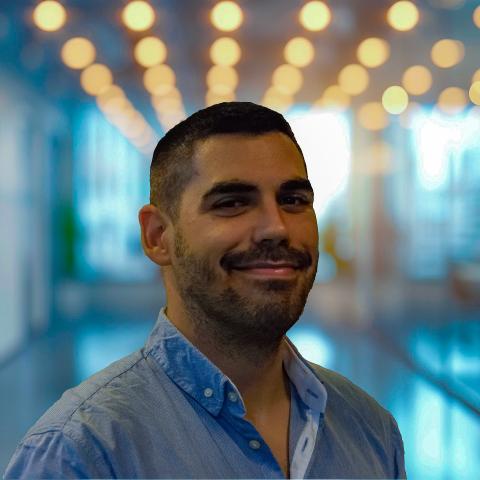
Nikolaos Louros, Ph.D.
Principal Investigator
Dr. Nikolaos Louros is an Assistant Professor of Biophysics at the Center for Alzheimer’s and Neurodegenerative Diseases (CAND) and a O’Donnell Brain Institute (OBI) Investigator at UT Southwestern Medical School. He is an Endowed Scholar of UTSW (Thomas O. Hicks Scholar in Medical Research). He also holds a secondary appointment with the Department of Biophysics at UT Southwestern. He earned his B.Sc. in Biology, M.Sc. in Bioinformatics, and Ph.D. in Molecular Biophysics from the National and Kapodistrian University of Athens (Greece), where he worked on studying the misfolding and assembly mechanisms of various proteins associated with the formation of pathological and functional amyloids.
Nikos' postdoctoral work took place at the VIB-KU Leuven Center for Brain & Disease Research , where he contributed to the development of several tools for the assessment of protein stability and aggregation. His postdoctoral work also revealed the impact of heterotypic interactions between amyloids and other biomolecules both in function and disease, with emphasis on proteins associated with major neurodegenerative disorders, such as Alzheimer's disease. Harvesting this knowledge, he has worked on developing anti-amyloid therapeutics agents.
Meet the Team
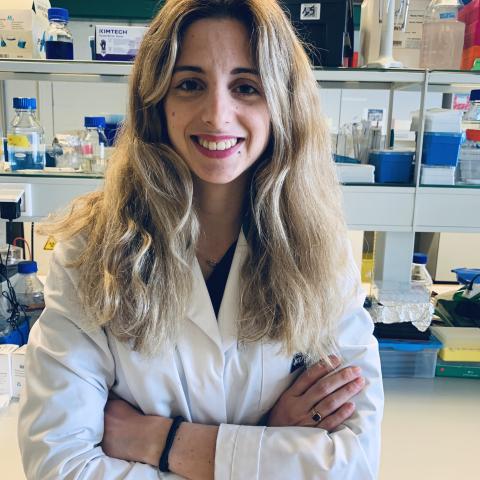
Katerina Konstantoulea, Ph.D.
Postdoctoral Researcher
I received my Bachelor's degree in Chemistry from the University of Ioannina, followed by a Master’s in Molecular and Cellular Life Sciences from Utrecht University. I earned my Ph.D. in Biomedical Sciences from KU Leuven where I focused on sequence-based interactions of Aβ42 in aggregation. I continued as a Postdoctoral researcher at Switch Lab in KU Leuven- VIB where I investigated the interactions of Aβ42 with disease-relevant proteins. I am passionate about unravelling the complexities of protein aggregation, from molecular intricacies to cellular dynamics and broader regional impacts. In the Louros lab, my interest in heterotypic interactions of brain amyloids guides my research towards gaining meaningful insights into the mechanisms of neurodegenerative diseases, with the ultimate goal of contributing to the development of targeted therapies.
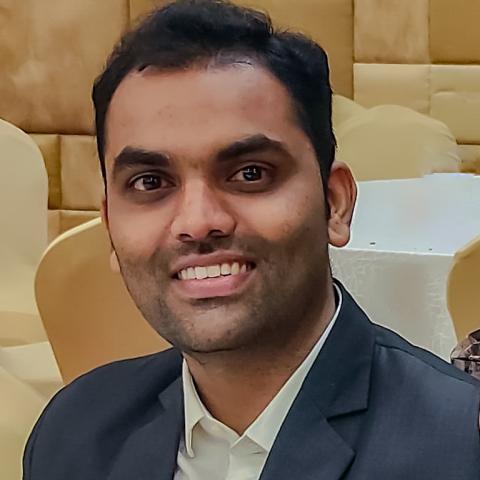
Laxmikant Gadhe, Ph.D.
Postdoctoral Researcher
Laxmikant completed his bachelor's degree in Biotechnology from Dr. Babasaheb Ambedkar Marathwada University, India. He then earned a Master's degree in Biotechnology from Bangalore University, India. He received his Ph.D. in protein biophysics and neurobiology at the Indian Institute of Technology Bombay (IIT Bombay), India, where he focused on developing a sensitive blood-based biochemical assay for diagnosing Parkinson's disease (PD) and protein structural studies. As a research associate at IIT Bombay, he worked on human case-control studies involving multi-angle profiling of blood samples of PD patients, as well as structural polymorphism through the biophysical characterization of ɑ-synuclein fibrils containing familial mutations. In the Louros lab, he will be working on the experimental validation of AI-based de novo designed a-synuclein inhibitors.
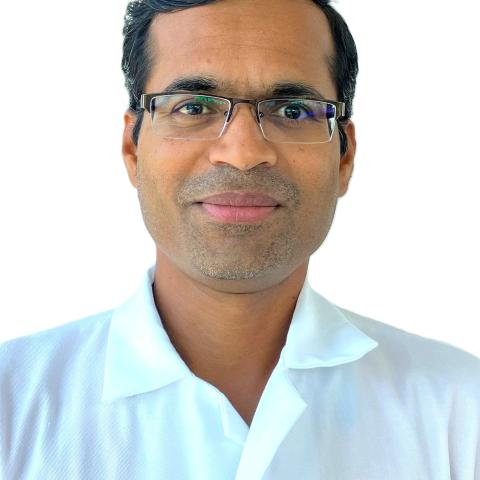
Harichandra Tagad, Ph.D.
Senior Research Scientist
Hari earned his Master's degree in organic chemistry from University of Pune (India) and worked as a project assistant at the National Chemical Lab (NCL), where he synthesized organophosphorus compounds and small drug molecules. He received his PhD in medicinal chemistry at Kyoto Pharmaceutical University (Japan), where he developed peptidomimetic inhibitors targeting β-site APP Cleaving Enzyme-1 (BACE-1), an enzyme involved in Aβ peptide production. As a postdoctoral researcher at the NCI (National Cancer Institute) at the NIH (National institute of Health) he developed small molecules and peptide-based inhibitors targeting Wip1 phosphatase which is overexpressed in various cancer types. As a research associate at the Institute for Bioscience and Biotechnology Research (University of Maryland, USA), he developed biodegradable macromolecules for drug delivery.
With a long-standing experience in designing and synthesizing small molecules and peptide-based inhibitors for target proteins involved in Alzheimer's, cancer and HIV progression, Hari has joined the Louros lab to work on the de novo design of small molecules and macrocycles targeting aggregation-prone proteins related to major neurodegenerative diseases.
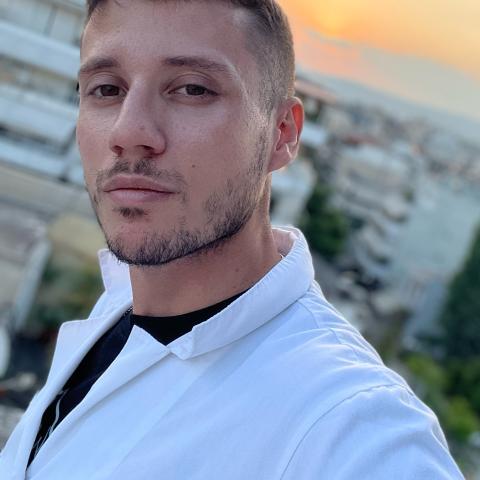
Vasilis Kyriazis, M.Sc.
Research Assistant
I received my Bachelor's degree in Chemistry from the Department of Chemistry, at the University of Athens (UOA), Greece in 2018, after completing my undergraduate thesis at the Charles University in Prague, Czech Republic. I earned my Master's in Applications of Biology in Medicine from the Department of Biology and Medicine (UOA) in 2022. With a solid foundation in chemistry and a Master's degree in Biomedicine and another in Bioinformatics, I am a versatile scientist equipped with advanced skills in bioinformatics and programming. My career journey has been driven by a passion for integrating scientific research with computational methodologies to solve complex challenges in healthcare and life sciences.
In the Louros lab, I will be working on my Master thesis for the Bioinformatics and Computational program from the UOA, working on the application of advanced AI-based models for the study of polymorphic amyloid fibrils linked to neurodegenerative diseases.
Macy Lozen
Graduate student
Macy earned her bachelor's degree in Health Science from Friends University and went on to complete her master's degree in Biological Chemistry at the University of Michigan, where she worked under Dr. Yan Zhang to study the inhibition of Neisseria CRISPR-Cas systems by various anti-CRISPR proteins. After completing her master's, Macy joined Dr. Katharina Schlacher's lab at The University of Texas MD Anderson Cancer Center, where she explored the mechanism behind inflammation-induced chemotherapy resistance, focusing on the interplay between nuclear and mitochondrial genome instability. Currently, Macy is pursuing a graduate degree in Biomedical Engineering at UTSW. In the Louros lab, she will be employing protein engineering to design de novo therapeutics targeting pathological amyloid conformations."
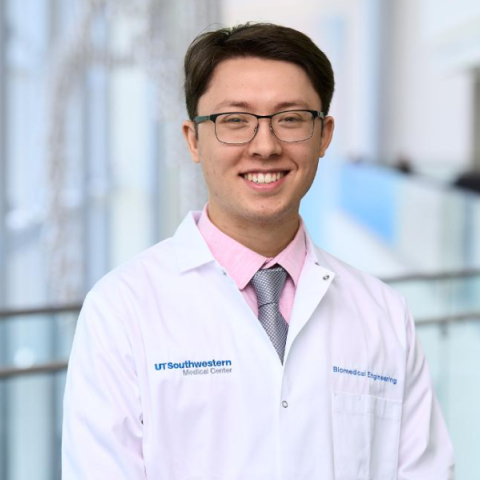
Frank Goodavish
Graduate student
Frank Goodavish earned his bachelor's in Molecular Biology and Chemistry from Austin College, where he worked on determining the interactions between native plant species and pollinators, as well as the inhibition of β2-microglobulin via small bait peptides. Joining the Louros lab, Frank will focus on studying heterotypic amyloid interactions that explain the selective vulnerability observed in Alzheimer's disease. When not in the lab, Frank enjoys the outdoors, photography, hanging out with Justin, and reading.
Lab alumni
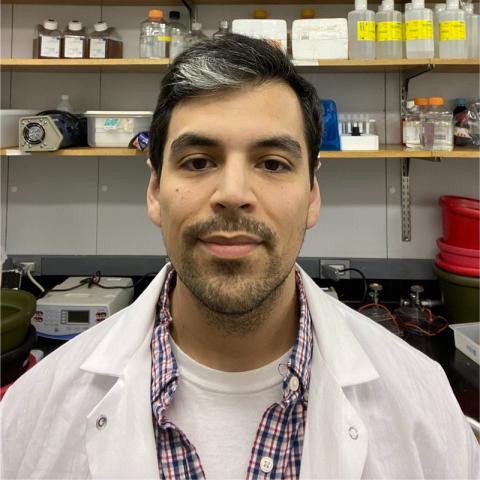
Christien Carter
Research Assistant II

Zackary Keller
Student Intern
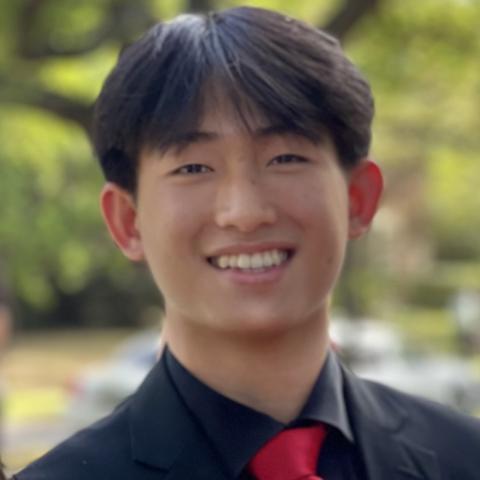
Nathan Ha
Student
Joining Soon!
Research Associate
Our lab is looking for a new member to join as an experienced research associate! Are you interested?
Please contact Dr. Louros by Email.
What about You? Join our Team!
We are newly established at the Center for Alzheimer's and Neurodegenerative Diseases, part of the Peter O'Donnell Jr. Brain Institute at UT Southwestern Medical Center. The Louros lab also holds a secondary affiliation to the Department of Biophysics at UT Southwestern Medical Center.
Our group is growing quickly, and we are currently accepting graduate students and postdoctoral scientists. We welcome qualified applicants from all backgrounds
Postdocs
Please email Dr. Louros with your CV and a brief description of your scientific interests and research goals.
Graduate Students
Potential graduate students at UT Southwestern apply and are accepted via the Graduate School of Biomedical Sciences. Once admitted, they typically take the one-semester Core Course and join individual Ph.D. programs during the second semester.
If you are already a UTSW graduate student and are interested in joining the lab, email Dr. Louros or drop by his office in the Center for Alzheimer's and Neurodegenerative Diseases (NS8.314).
- Do you have expertise that could help us?
- Are you interested in expanding your skillset?
- Are you a motivated and curious researcher with interesting ideas you want to pursue?
Contact Dr. Louros about joining the lab!